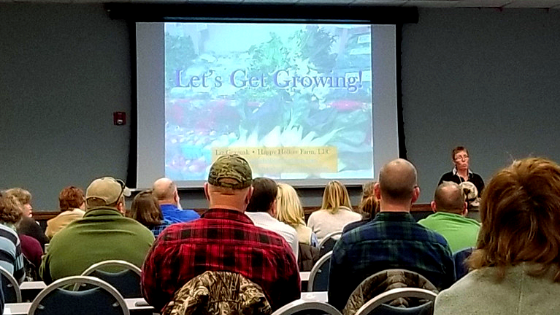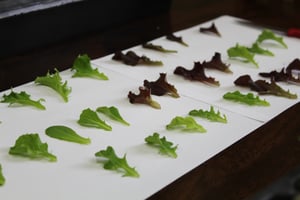
OUR FOOTPRINT
Our boots have been on the ground many times this year venturing across the United States and Canada. We’ve visited more states and provinces than ever before in the 37 years that Osborne Quality Seeds has been a company.
We strive to learn as much as possible about the struggles and triumphs that our growers experience, which are often unique to their region. We believe that connecting in-person is the best way to work towards the goal of serving our customers, and that the value of connecting to regional farming communities is immeasurable.
COLLECTIVE KNOWLEDGE
Osborne Quality Seeds attended conferences in Alberta, British Columbia, Arkansas, California, Florida, Michigan, Missouri, North Dakota, Oregon, Ohio, Texas, Wisconsin, and of course Washington. By setting up a booth at a trade show, we can engage in conversations with growers about their personal farming experience; Favorite varieties, varietal needs, farming methods, and market outlets are all topics that we dive into.
We share with these growers behind-the-scenes information about our process of sourcing, trialing, and selecting varieties. This information, in turn, can help growers make better informed decisions when choosing varieties for their farm. We relish the chance to talk about our favorite new additions in the catalog, and often bring seed samples to each tradeshow to share. The opportunity to div.png?width=300&name=Untitled%20design%20(6).png) e into passionate discussions about lettuce, microgreens, and carrots, and to exchange photos of plants and harvested produce is exciting. These lively exchanges and personal connections is a large part of what inspires our work.
e into passionate discussions about lettuce, microgreens, and carrots, and to exchange photos of plants and harvested produce is exciting. These lively exchanges and personal connections is a large part of what inspires our work.
Attending and participating in conference workshops also helps to enrich and inform our knowledge of regional disease and pest pressure. There are diseases that we are not yet familiar with in the Pacific Northwest but are prevalent in warmer, more humid climates. By attending these classes, we can enlarge our product search for varieties with needed disease resistance, and tolerance to wider ranges of temperature fluctuations, frost and heat.
On a related note, there are pests that we haven’t had the displeasure of seeing in our fields. Learning about methods to combat these challenges increases our ability to provide support. With this information, we can better understand and engage in conversations with growers when they contact our office and seek information, or when we walk their fields and tunnels during farm-visits. By taking all of these steps to nurture the growing process, we also learn where we need to expand our research and how to grow better ourselves.
APPLYING OUR KNOWLEDGE AND EXPERIENCE
We return to the office after we attend the conferences with a wealth of information gained from workshops and direct grower engagement. This knowledge fuels our fire to find new varieties to expand and improve our product lineup.

Conference season is primarily in the fall and winter, which coincides with the planning of our variety trials, which you can read about here. In our discussions with seed breeders and producers, we address growers’ needs to diversify and meet challenges on their farms. Our trial field, on-farm trials, and ultimately our catalog of vegetable, herb, flower, and cover crop seeds are guided by growers across the United States and Canada. Their response to our sharing of knowledge, and the networking we invest in help create much of what we have to offer.
Stay tuned for more #Bootsontheground highlights of our travels to meet growers on their farms across the country. Follow our Instagram, @osborneseed, and Facebook for pictures of farm visits. As always, contact us at info@osborneseed.com if you would like see us in your area or if you have questions of any kind.
-1.png?width=600&name=Untitled%20design%20(7)-1.png)
Stay connected with upcoming varieties, offers, and news by updating your contact information by click the button below.
Rebecca Morse's Instagram @jerichofarmer
